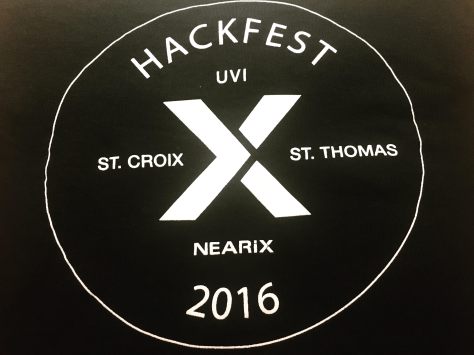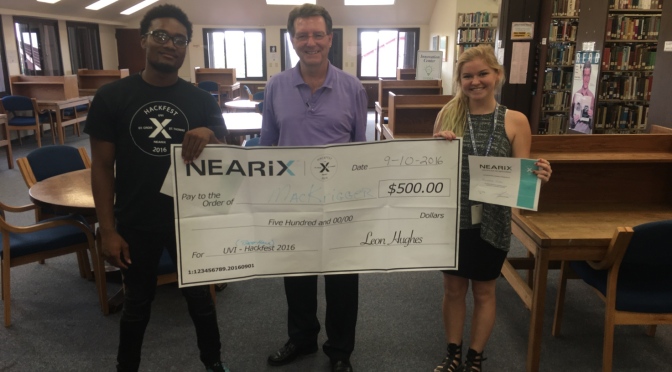Featured Image: Dr. Tim Faley and Team McKrigger after they were presented with the “Best Hack” $500 check and a certificate for 40 hours of free mentoring from NEARiX.

The Hackathon 2016 T-shirt design.
Alicia Taylor |
ST. CROIX – Imagine getting paid to bring your crazy ideas to life. The UVI Hackathon allowed students to do just that.
The 2nd annual Hackathon to be held on St. Croix took place September 9th and 10th in the Albert A. Sheen Campus Library. Thanks to NEARiX LLC, UVI’s Research and Technology Park (RTP) and Virgin Islands Experimental Program to Stimulate Competitive Research (VI-EPSCoR), UVI Innovation Design and Entrepreneurship Association (UVIDEA), students competed for $700 in cash prizes and a $100 UVI bookstore certificate.
In a 24-hour span, students broke into teams to develop an app that reflected the year’s theme of health and wellness. UVI Distinguished Professor and Special Assistant to the President, Tim Faley, instructed students to create an app that they would personally use.
The students took that advice and ran with it. They saw a problem and came up with a solution to solve it in the form of an application for cell phones.
However, of the four teams competing, there could only be one grand prize winner.
Team “MacKrigger” took home the title of “Best Hack,” as well as a certificate for 40 hours of free mentoring from NEARiX to expand on their idea, an estimated total value of $5,000, and the $500 cash prize. Continue reading ‘WhatUEatin’ Won Big at The 2nd Annual UVI Hackathon at St. Croix






